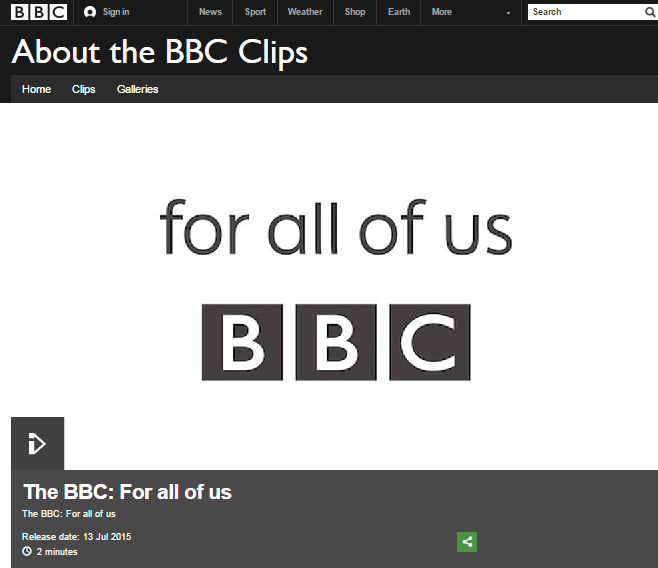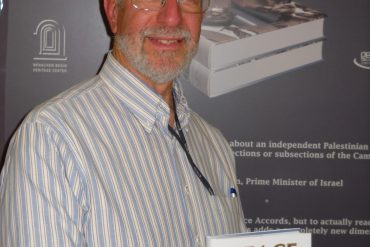This is cross posted at Yaacov Lozowick’s Ruminations
Yesterday I linked to a Guardian story which encouraged us to believe that Palestinians and Israelis were equally shocked by the murder of the Fogel family. The reporter, Harriet Sherwood, didn’t supply any facts to bolster her claim, not even one, so it’s hard to know what she thought she was referring to, or if – as I understand it – she was simply inventing things from thin air.
A number of readers discussed the matter, and one, Mich, offered a fascinating report by Shlomi Eldar (not to be confused with Akiva Eldar of Haaretz: Shlomi is a reporter who’s primary interest is in facts). You need Hebrew to follow Eldar’s report, which of course Sherwood doesn’t have, and since she gives no inkling she’s aware of Eldar’s report, I stand by my characterization of her as an ideologically-motivated hack. Having said that, Eldar’s report deserves an English summary:
I’ve been reporting in the Palestinian territories for many years, and the responses I recorded today in Shchem (Nablus) really surprised me. They seem to show a substantial distance between the PA leadership and regular people. The leadership (he cites Abbas and others) are muttering a condemnation of the murder, mostly not in Arabic and not in front of their public, and then they’re condemning Israeli settlements. Nothing new here. On the other hand, I went to Shchem today, and was very surprised. People on the street were willing to condemn the murder unequivocally, in Arabic and in Hebrew, with no embarrassment, in front of the camera, and even identify themselves. [He shows some examples]. I’ve been covering the Palestinian territories for years, but this I’ve never seen before. In the middle of town, publicly, people had no compunctions openly to condemn the murder of children.
At this point one of the two anchormen asks if this is real, or perhaps a one-off encounter with unusual townsmen. Eldar insists: the interviews I’ve just shown were representative, and I made lots of them, not only the snippets I just screened. Moreover, I didn’t find anyone saying the usual things about how it’s settlers and Israelis and IDF violence and all that. The atmosphere in Shchem today is that the murder of the Fogel family was a terrible crime.
OK. So what does all this mean? Shlomi Eldar says he doesn’t know, so I certainly know even less. Still, being a blogger means you’ve got to have theories about everything all the time, right? So here are some conjectures.
1. Netanyahu’s economic peace is working. Look at the store fronts of Shchem: the economy is obviously booming, people are beginning to live normal lives, and this allows them to think normal thoughts. The fact that the IDF has largely moved out of the West Bank and has dismantled most of the roadblocks, even as the settlements aren’t growing, no matter what the international media reports, is creating a new breathing space for the Palestinians, and they’re beginning to breathe normally.
2. Exhaustion. The economic peace of 2009-2011 is succeeding where the boom of the late 1990s didn’t, because the Palestinians have lost their illusions. In their suicide-bomber war of 2001-2003 they tried to break Israeli society, but the attempt backfired disastrously. Now they’re eager to pick up where they could have been in 1999, this time wiser and more realistic about what can and can’t be achieved.
3. The Arab Spring of 2011 really does mean something. Over the past few months we’ve seen masses of Arabs all over the region wishing for the same kind of world the rest of us live in, and bravely trying to get there. It’s not even remotely clear they’re going to end up with liberal open societies, but then again, it’s not certain they won’t – and even if they don’t, some of them really do seem to be striving for it.
4. Settlements aren’t as aggravating as we’ve endlessly been told. If there really is a sea change underway in the West Bank, it has started even though the Jewish settlements are still there. This doesn’t necessarily mean the Palestinian populace is willing to have them stay there, but it may mean they’re open to a process where reconciliation happens in the minds before the reality is foolishly and irrevocably changed.
5. Most important of all, were it to be true: After a full century of miscalculating, the Palestinians are beginning to understand that the only way they’ll get peace with Israel is by mutual recognition of our common humanity. The first man interviewed says, repeatedly: “Tell the Israelis Muslims aren’t allowed to murder”, and the teenager, brandishing the picture of Ehud Fogel says “Why should he have died? Isn’t it a waste?”
This is all speculative, and possibly wishful thinking. Yet I’m not certain. Over the past few months, perhaps a year, I’ve been wandering a lot through East Jerusalem, and occasionally through parts of the West Bank, and the calm and normality have been striking. I’ve also had more simply normal human interactions with Palestinians than in many years. Something may be happening – unreported in the media, in a dynamic which contradicts the endless chatter of the diplomats – but potentially very important.
If so, it needs to be carefully and warily nurtured. Carefully, warily, and nurtured. And patiently. Not words that are easily compatible with the instincts of the people who’ve got it wrong so far, who need to see their pet solutions applied NOW, and are intoxicated with their certainties.




